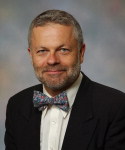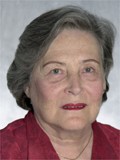
Professor Ruth Arnon
Paul Ehrlich Professor of Immunology at the Weizmann Institute of Science
Education and Positions:
1955 – M.Sc., Chemistry, from the Hebrew University, Jerusalem; 1960 – Ph.D. Hebrew University,work carried out at the Weizmann Institute of Science; 1971 – Associate Professor; 1975 – Professor; 1973-1974 and 1975-1978 08:57 17/06/2010– Head of Department of ChemicalImmunology; 1984-1989 – Director of the MacArthur Center for Parasitology at the Weizmann Institute; 1985-1993 – Dean of the Faculty of Biology; 1988-1993 – Vice-President; 1995-1997 – Vice-President for International Scientific Relations.
Visiting Scientist:
1960-1962 – Rockefeller Institute, New York; 1968-1969 – University of Washington, Seattle; 1977-1978 – University of California, Los Angeles; 1983 – Institute Pasteur, Paris; 1994 – Walter and Eliza Hall Institute, Melbourne; 1995 – Imperial Cancer Research Fund, London; 1995 – ICRF-London; 1995 – Rockefeller Research Center – Study and Conference Center, Bellagio; 1996 – Fogarty Scholarship, NIH, USA; 1997-98 – Fogarty Scholarship, NIH, USA. 1998 – Pasteur Institute, France.
Positions in Scientific Bodies:
WHO Task Force on Immunological Methods for Fertility Control (Steering Committee) 1972-1977; President of European Federation of Immunological Societies (EFIS) 1983-1986; Secretary-General of International Union of Immunological Societies (IUIS) 1989-1993. Elected Member of EMBO. Chairman of the Science Division of the Israel Academy of Sciences and Humanities (1995-present). Advisor for Science to the President of Israel (2001-present).
Prizes and Honors:
Robert Koch Prize in Medical Sciences, Bonn, Germany (1979); Jimenez Diaz Award, Madrid, Spain (1986); Member of the Israel Academy of Sciences and Humanities (1990); Chevalier of l’Order de la Legion d’Honneur, France (1994); Wolf Prize (1998); Rothschild Prize (1998); Israel Prize in Medical Research 2001. Published about 350 articles, chapters and books in the field of Immunology and Biochemistry.
Professor Marcus Feldman
Professor of Biological Sciences and director, Morrison Institute for Population and Resource Studies, Stanford University, Calif.
Marcus Feldman uses applied mathematics and computer modeling to simulate and analyze the process of evolution. His specific areas of research include the evolution of complex genetic systems that can undergo both natural selection and recombination, and the evolution of learning as one interface between modern methods in artificial intelligence and models of biological processes, including communication. He also studies the evolution of modern humans using models for the dynamics of molecular polymorphisms, especially DNA variants. He helped develop the quantitative theory of cultural evolution, which he applies to issues in human behavior, and also the theory of niche construction, which has wide applications in ecology and evolutionary analysis. He also has a large research program on demographic issues related to the gender ratio in China.
Feldman is a trustee and member of the science steering committee of the Santa Fe Institute. He is managing editor of Theoretical Population Biology and associate editor of the journals Genetics; Human Genomics; Complexity; the Annals of Human Genetics; and the Annals of Human Biology. He is a former editor of The American Naturalist. He is a fellow of the American Academy of Arts and Sciences and of the California Academy of Science. His work received the “Paper of the Year 2003” award in all of biomedical science from The Lancet. He has written more than 335 scientific papers and four books on evolution, ecology, and mathematical biology. He received a BSc in mathematics and statistics from the University of Western Australia, an MSc in mathematics from Monash University (Australia), and a PhD in mathematical biology from Stanford. He has been a member of the Stanford faculty since 1971.
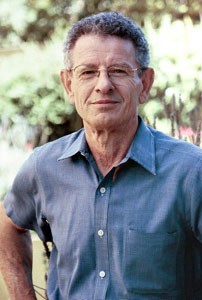
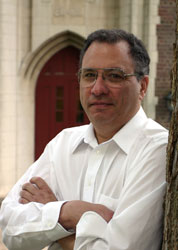
Professor Simon A. Levin
Co-Chair of Science Board, Ex-Officio Trustee, Santa Fe Institute, Moffett Professor of Biology, Princeton University, Ecology & Evolutionary Biology.
Research Areas:
- Physics of Complex Systems
- Emergence & Innovation in Evolutionary Systems
- Dynamics & Quantitative Studies of Human Behavior
- Emergence, Organization & Dynamics of Living Systems
- Robustness in Biological and Social Systems
Simon A. Levin received his B.A. from Johns Hopkins University and his Ph.D. in mathematics from the University of Maryland. At Cornell University 1965-1992 , he was Chair of the Section of Ecology and Systematics, and then Director of the Ecosystems Research Center, the Center for Environmental Research and the Program on Theoretical and Computational Biology, as well as Charles A. Alexander Professor of Biological Sciences (1985-1992). Since 1992, he has been at Princeton University, where he is currently George M. Moffett Professor of Biology and Director of the Center for BioComplexity. He retains an Adjunct Professorship at Cornell. His research interests are in understanding how macroscopic patterns and processes are maintained at the level of ecosystems and the biosphere, in terms of ecological and evolutionary mechanisms that operate primarily at the level of organisms; in infectious diseases; and in the interface between basic and applied ecology. Levin is a Fellow of the American Academy of Arts and Sciences and the American Association for the Advancement of Science as well as a Member of the National Academy of Sciences and the American Philosophical Society. He Chairs the Governing Council for IIASA, and co-chairs the Science Board of the Santa Fe Institute. Levin is a former President of the Ecological Society of America and the Society for Mathematical Biology, and a past Chair of the Board of the Beijer Institute of Ecological Economics. Among other awards, he won the MacArthur Award (1988) and the Distinguished Service Citation (1998) of the Ecological Society of America, and the Okubo Award of the Society for Mathematical Biology and the Japanese Society for Theoretical Biology. Most recently, he was honored with the Dr. A.H. Heineken Prize for Environmental Sciences by the Royal Netherlands Academy of Arts and Sciences (2004), the Kyoto Prize in Basic Sciences (2005) by the Inamori Foundation, and the Distinguished Scientist Award of the American Institute of Biological Sciences. Levin has mentored more than 100 graduate students and postdoctoral fellows.
Professor Lee A. Segel *
Applied Mathematician, Rensselaer Polytechnic Institute and the Weizmann Institute of Science
Died: January 31, 2005, in Israel
Lee A. Segel was an applied mathematician primarily at the Rensselaer Polytechnic Institute and the Weizmann Institute of Science. He is particularly known for his work on the spontaneous appearance of order in convection, slime molds and chemotaxis. At the Weizmann Institute of Science, Rehovot, Israel, he served as Chairman of Applied Mathematics, Dean of Mathematical Sciences and Chairman of the Scientific Council. He was an Ulam Scholar at the Los Alamos National Laboratory, a Fellow of the American Association for the Advancement of Science and a member of the Santa Fe Institute, where he worked on complex adaptive systems. He served as editor or editorial board member of six journals.
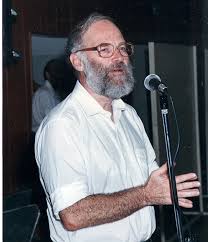
Professor Lord R May of Oxford AC Kt PRS *
Professor Lord R May of Oxford AC Kt PRS
Died: April 28, 2020, Oxford, United Kingdom
Robert McCredie, Lord May of Oxford, OM AC Kt, held a Professorship jointly at Oxford University and Imperial College, London and was a Fellow of Merton College, Oxford. He was President of The Royal Society (2000-2005), and before that Chief Scientific Adviser to the UK Government and Head of the UK Office of Science and Technology (1995-2000). He was also, among other things, a Trustee of the Nuffield Foundation and of the Cambridge University Gates Trust, and until recently Chaired the Trustees of the Natural History Museum. His career includes a Personal Chair in Physics at Sydney University aged 33, Class of 1877 Professor of Zoology and Chairman of the Research Board at Princeton, and in 1988 a move to Britain and Oxford as Royal Society Research Professor. Particular interests include how populations are structured and respond to change, particularly with respect to infectious diseases and biodiversity. He was awarded a Knighthood in 1996, and appointed a Companion of the Order of Australia in 1998, both for “Services to Science”. In 2001 he was one of the first 15 Life Peers created by the “House of Lords Appointments Commission”, which was established as an independent mechanism for appointing non-party-political Peers following the removal of the voting rights of hereditary Peers. In 2002, The Queen appointed him to the Order of Merit (the fifth Australian in its 100-year history). His many honours include: the Royal Swedish Academy’s Crafoord Prize (bioscience and ecology’s equivalent of a Nobel Prize); the Swiss-Italian Balzan Prize (for “seminal contributions to [understanding] biodiversity”); and the Japanese Blue Planet Prize (“for developing fundamental tools for ecological conservation planning”). He is a Foreign Member of the US National Academy of Sciences, an Overseas Fellow of the Australian Academy of Sciences, and an Honorary Fellow of the Royal Academy of Engineering and several other Academies and Learned Societies in the UK, USA and Australia. In 2007 he received the Royal Society’s Copley Medal its oldest (1731) and most prestigious award, given annually for “outstanding achievements in research in any branch of science”.
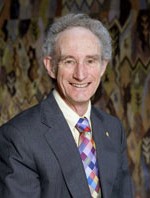

Professor Nimrod Megiddo
IBM Corp., Almaden Research CenterCalifornia, U.S.
Degrees:
(all from The Hebrew University of Jerusalem, Israel): 1968 – B.Sc., Mathematics, Physics and Complementary Studies; 1969 – M.Sc., Mathematics; 1972 – Ph.D., Mathematics
Permanent positions:
Tel Aviv University, School of Mathematical Sciences, 1972 – 1998.; IBM Corp., Almaden Research Center, Foundations: Principles and Methodologies, 1984 – to date.
Institutions where I held visiting positions:
Tokyo Institute of Technology, 1975; University of Illinois at Urbana-Champaign, College of Commerce and Business Administration, 1977/78; Northwestern University, Kellogg Graduate School of Management, 1978/79, 1981; National Research Institute for Mathematical Sciences, C.S.I.R., South Africa, 1981; Carnegie-Mellon University, Graduate School of Industrial Administration, 1982/83; Stanford University, Computer Science Department, 1983/84; Xerox Corp., PARC (Palo Alto Research Center), 1984; MSRI (Mathematical Sciences Research Institute), Berkeley, California, 1985/86.
Awards:
The Joseph Levy Prize, ORSIS – Operations Research Society – Israel, 1986; ICS Prize, INFORMS Computer Society, 1992; Outstanding Innovation Award, IBM Corp., 1992; Frederick W. Lanchester Prize, INFORMS – Institute for Operations Research and the Management Sciences (formerly the Operations Research Society of America), 1992; Outstanding Innovation Award, IBM Corp., 1995; Outstanding Innovation Award, IBM Corp., 2004; Pat Goldberg Memorial Best Paper Award, 2005; INFORMS Fellow Award, 2009; Society for the Advancement of Economic Theory Fellow Award, 2011; USENIX File and Storage Technologies (FAST) Test of Time Award, 2014; John von Neumann Theory Prize, INFORMS – Institute for Operations Research and the Management Sciences, 2014.
Professor Stanimir Vuk-Pavlovic
Professor of Biochem/Molecular Biology, Director of Stem Cell Laboratory, Mayo Clinic Cancer Center; Division of Hematology and Division of Preventive and Occupational Medicine, Department of Internal Medicine, Mayo Clinic College of Medicine, Rochester, Minnesota, USA.
Professor of Biochemistry and Molecular Biology at the Mayo Clinic College of Medicine and a full member of the Mayo Graduate School. In addition, he is a member of the Division of Hematology, Department of Internal Medicine, of Department of Oncology, and of Department of Biochemistry and Molecular Biology. As Director, Stem Cell Laboratory, National Cancer Institute-Designated Mayo Clinic Comprehensive Cancer Center, he develops methods in support of cellular therapies, particularly of transplantation of allogeneic hematopoietic stem cells and cellular immunotherapy of malignant diseases.
Vuk-Pavlovic is a member of the American Association for Cancer Research, American Society of Biochemists and Molecular Biologists, American Society of Hematology, International Society for Cell Therapy and other professional associations. In Croatia he was a member of the Croatian Society of Science. He served on the Society’s board of directors from 1978 until 1983 and was its vice president at the time of departure to the United States. He is an honorary adviser to the Ruder Boskovic Institute in Zagreb and a corresponding (foreign) member of the Croatian Academy of Science and Arts. He is a member of the Scientific Advisory Board of Pliva the Croatian pharmaceutical industry and of the Institute of Medical Biomathematics, Tel Aviv, Israel. For his humanitarian and political contribution to the War of Croatian Independence he was awarded the Presidential Orders of Croatian Weave and of Croatian Morningstar (Danitsa) with the Likeness of Katarina Zrinska.
Vuk-Pavlovic’s scientific interests began with the application of nuclear magnetic resonance and other physical-chemical methods in the studies of structure and function of biomacromolecules (hemoproteins, immunoglobulins). Collaborating with Prof. Kre?imir Paveli? and Prof. Zeljko Bajzer he studied humoral mechanisms of regulation of tumor growth by biochemical, biological and mathematical methods. Observations in the area of cell kinetics led Vuk-Pavlovic into the studies of receptor-mediated endocytosis and quantitative analysis of the interactions of halogenated pyrimidines and hormone derivatives in three-dimensional tumor models by nuclear magnetic resonance. Since 1996 he has dedicated his efforts to cell and tissue engineering in developing new methods for immunotherapy of malignant disease and transplantation of hematopoietic stem cells.
* deceased
